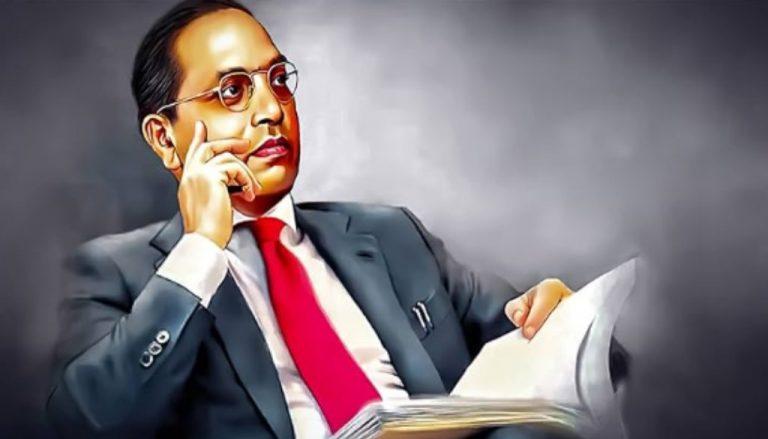
Ambedkarism is a living force in India today. Bhimrao Ramji Ambedkar (April 1891 – December 6, 1956), also known as Babasaheb, was an Indian jurist, politician, philosopher, anthropologist, historian and economist. As a revivalist of Buddhism in India, he inspired the modern Buddhist movement in India, also known as the Dalit Buddhist movement. As the first Law Minister of independent India, he was a major architect of the Indian Constitution. Overcoming many social and economic obstacles, Ambedkar became one of the first Dalits in India to receive a college education.
While pursuing a legal career in the Bombay High Court, he tried to uplift the untouchables by providing them with education. His first organized effort to achieve this was the BahishkritHitakarin Sabha, which was intended to promote education and socio-economic improvement, as well as the welfare of the outcasts, who were then known as the Depressed Classes. After India gained independence on 15 August 1947, the new Congress-led government invited Ambedkar to serve as the country’s first Law Minister, which he accepted. He studied Buddhism throughout his life and by the 1950s, he had turned his full attention to Buddhism. He planned to convert to Buddhism officially.
Social Justice
Babasaheb Dr. Bhimrao Ambedkar inherited a society based on hierarchical inequality and injustice that had led to the deprivation of human rights for millions of his countrymen. Above all, he felt it was necessary to reform and rebuild Hindu society on the basis of social justice for all. The time has come to abolish the caste system which breeds and increases social tension and establish a casteless society based on justice, equality and fraternity. B.R. Ambedkar was one of the main representatives of the oppressed classes in India. It is a fact that Babasaheb Ambedkar did not propose a specific definition or theory of ‘social justice’. However, in the light of the principles embodied in the theory of social justice proposed by Plato and Rawls, one can infer the basic cultural and structural principles of social justice embodied in Babasaheb Ambedkar’s thoughts. Although economic problems are political in nature, they are fundamentally social. Dr. Ambedkar pointed out that the government should plan its economic activities properly so that it can promote productivity without hindering private entrepreneurship.
Economic Theory
Dr. Ambedkar studied economic issues such as agricultural reforms, smallholder farmers, agricultural productivity problems related to Indian currency, and the problem of regional economic planning. He made immense contributions to general economics, socialist economics, and agricultural economics. He presented a true picture of regional economics in India. His economic ideas are still relevant today. Ambedkar believed that only an automatic system based on the gold standard with a commitment to internal stability, a gold currency, could achieve this desirable goal. He believed that governments should spend the resources collected from the people not only according to rules, laws, and regulations, but also to see to “fidelity, wisdom, and economy”.
Intervening in a debate in the Bombay Legislative Council on October 10, 1927, Dr. Ambedkar argued that the solution to the agricultural question “lies not in increasing the size of the fields, but in intensive farming, which uses more capital and more labor in farms like ours”. He also stressed the need for state ownership of key industries and the need for industrialization to shift surplus labor from agriculture to other productive occupations. Therefore, Ambedkar’s thinking on government finances and agriculture is very important. Still applicable in India’s current situation.
Political Ideology
Ambedkar’s political philosophy has a great capacity to mediate the liberal and socialist traditions of the West. The individual is connected to society on the basis of morality. He proposes a democratic, humanistic rational religion like Buddhism as the source of morality-related life. When he talks about the sufferings of individual members of the Dalit community, he presents an ideal moral society based on equality, freedom and fraternity. Therefore, in many respects he differs from liberal thinkers like Nehru.
Dalit Ideology
Ambedkar played a very important role for the most oppressed sections of Indian society. It is difficult for the untouchables to understand social justice in Indian society without recognizing Ambedkar’s role. He was also a victim of Hindu traditions. He was the first person to see the problems of the Dalits as citizens with specific social, economic and political rights. As a result of his work, a completely new kind of consciousness emerged among the oppressed sections. Ambedkar proved that the problems of the Dalits were necessarily political.
Ambedkar saw the strategic use of religion in politics and its ill effects on two occasions. Dalits, who constitute more than half of the country’s population, and women are the two groups who are the cruel victims of such a social system. It is indeed difficult for a modern state to establish secularism and a truly democratic order in such a patriarchal, caste-based, religiously ordained social and political environment. He started several periodicals like Mook Nayak, Bahishkrit Bharat and Samantva Janata for the protection of Dalit rights. He also started a struggle for the right to enter Hindu temples. He led a Satyagraha in Mahad to fight for the right of the untouchable community to draw water from the main water tanks in the cities.
Buddhism
In an article titled “Buddha and the Future of His Religion”, published in the Mahabodhi Society Journal in 1950, Ambedkar summarized his views on Buddhism. It is not enough for a religion to have a moral code, but its moral code must recognize the fundamental principles of liberty, equality and fraternity for the survival of human beings in harmony with the co-operation of the co-operative. In May 1956, Ambedkar’s speech entitled “Why I like Buddhism and how it can be useful to the world in the present circumstances” was broadcast by the British Broadcasting Corporation in London.
In his speech, Ambedkar said: “I like Buddhism because it combines three principles that no other religion does. Buddhism teaches Prajna (understanding against superstition), Karuna (love) and Samadhi (equality). This is what man wants for a good and happy life. As Ambedkar himself said: “Men are mortal. So are thoughts. Thoughts need propagation as a plant needs watering. Otherwise both will wither and perish.” Dr. Ambedkar also drew a distinction between dharma and religion. He says, “Religion is personal and should be kept to oneself. It should not be allowed to play its role in public life. Dr. Ambedkar’s vision of a new society brought about by the practice of Buddhism moved his followers.
Place in Indian History
Ambedkar was a socio-political reformer who had a profound impact on modern India. In post-independence India, his socio-political thought gained him respect across the political spectrum. A memorial to Ambedkar was erected at his house at 26 Alipore Road, Delhi. His birth anniversary is celebrated as a public holiday known as Ambedkar Jayanti. He was posthumously awarded the Bharat Ratna, India’s highest civilian award, in 1990. His initiatives have influenced various walks of life. Dr. Babasaheb Ambedkar Open University in Hyderabad; B.R. Ambedkar Bihar University in Muzaffarpur; Dr. Babasaheb Ambedkar Marathwada University in Aurangabad, Maharashtra; Dr. Babasaheb Ambedkar International Airport in Nagpur, otherwise known as Sonegaon Airport, are named in his honour. A large official portrait of Ambedkar is displayed in the Indian Parliament building. As the architect of the Indian Constitution, he is the model for many constitutions. His ideas are conducive to the development of all sectors of contemporary society.











